If the Academy is having a hard time getting itself out of its unpopular hole, it might help if they brought the public in, not by awarding The Most Favorite Film — which goes against the grain of the Academy itself, being made up of the august members of the motion picture industry. The Academy is the exact opposite of the masses who are not attending theatrical events as much as watching streaming in the comfort of their living rooms, and obviously not watching movies enough to want to watch the Academy Awards.
How about spreading the love for movies by making the international films broadly available before, not after, the Oscars have been awarded? Convincing distributors to rethink how they release their non-English films or docs or shorts to the public might stir up more interest in these categories. When they are hot, on the tail of being picked up at the famous festivals when news of them first breaks, rather than giving them one-week releases close to the end of the year in order to qualify them for the Oscars and then removing them from theaters and streaming platforms until they win the Oscar — if they do — might help.
Put them on streaming platforms if not in theaters and advertise their availability even if you can’t book a theater. The same thinking goes for the shorts which are now being decamped to an off-camera pre-Oscar event. If we (the public) wanted to see what the contenders are, then why can we not easily find and watch the shortlisted and then the five nominated films?
Films up for Academy Awards to be televised March 27 and upon which the Academy member will vote March 17–22 should be more widely available to the public. The films being feted, and particularly the international, the docs and the shorts, should be made widely available to the public so that the public will have more of a stake in the Awards ceremony and therefore be more likely to tune into it.
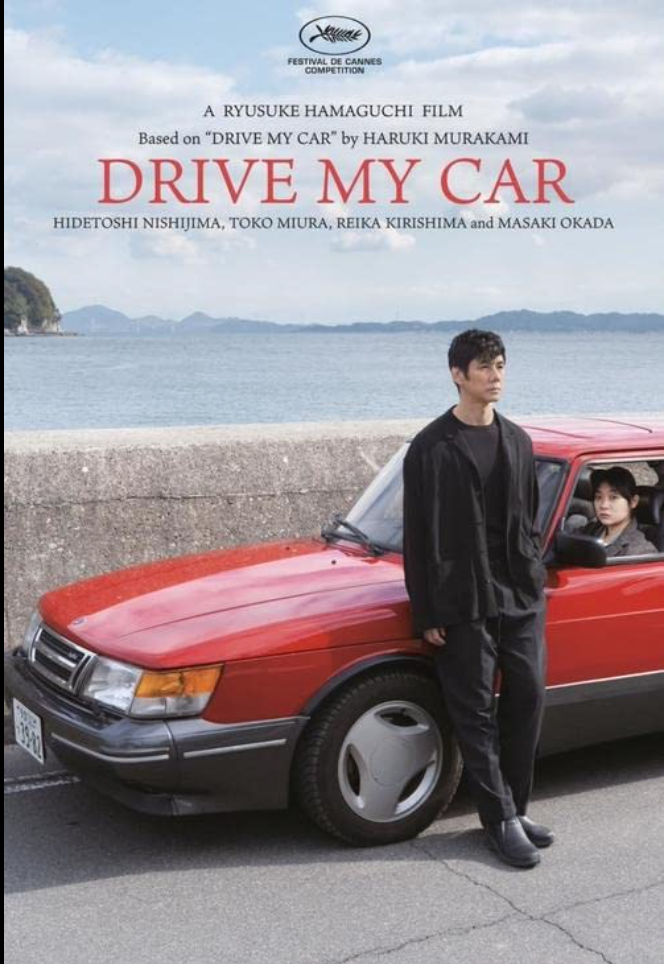
A quick look at them, two from Asia and three from Europe and an overview of them and the other shortlisted films shows the importance of world class festival premieres. Another look shows some are ubiquitous on multiple streaming platforms while others are nowhere to be found.
Upcoming filmmakers should be aware that these top festivals demand world premieres, so they should aim high when planning the festival and distribution strategy for their films initially and apply or get invited, two ways the festivals choose their programs. But this insular film circuit, only open to cineastes and cinephiles, could be the launch pads to seeing contenders and spreading some word of mouth pre-Oscar season, if only the public were allowed to see them. Looking at TelescopeFilm.com, the U.S. distribution via streaming platforms of these films ranges from the unseeable to the ubiquitous.
Drive My Car — Japan by Ryûsuke Hamaguchi. Premiered in Cannes. (US: Janus, ISA: The Match Factory). Not available anywhere on streaming...not even on Criterion, the streaming platform of Janus, its distributor.
Flee — Denmark by Jonas Poher Rasmussen. Premiered in Sundance 2022. (US: Neon, ISA: Cinephil). Available everywhere: Amazon, Apple, Hulu, Google Play, Vudu, Microsoft, YouTube, Direct TV and AMC.
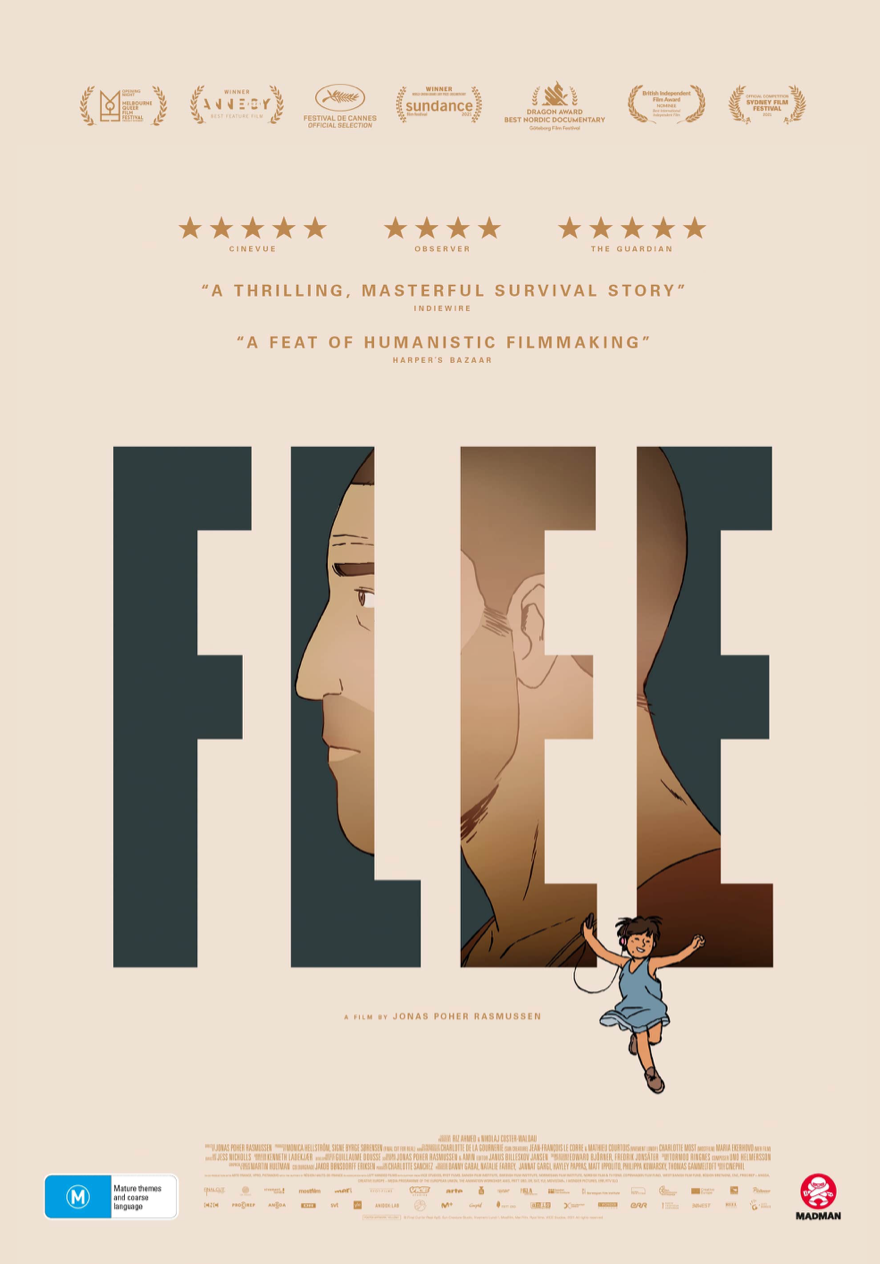
The Hand of God — Italy by Paulo Sorrentino. Premiered in Venice. (Netflix worldwide) Literally a fabulous film, a real winner whether or not it takes the Oscar. Available only on Netflix.
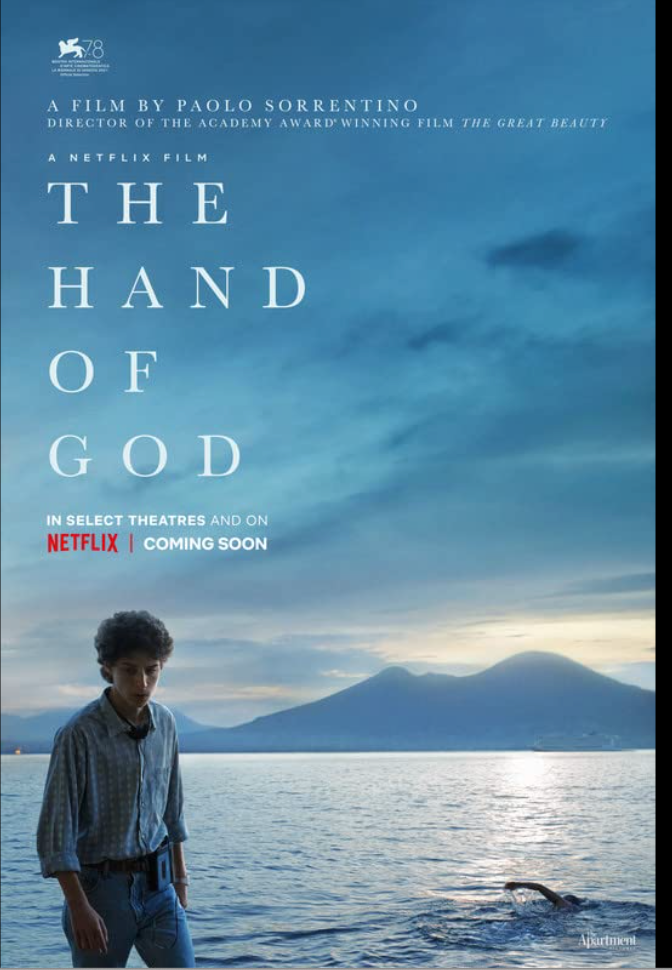
The Worst Person in the World — Norway by Joachim Trier. Premiered in Cannes. (US: Neon, ISA: MK2). Not available anywhere…what gives with Neon and how it handles this and its other nominated film Flee?
Lunana: A Yak in the Classroom — Bhutan by Pawo Choyning Dorji. Premiered simultaneously in BFI London, Vancouver and Busan Film Festivals. (No. America: Goldwyn, ISA: Films Boutique). Surprisingly for Goldwyn, the film is available on many platforms, Amazon, Apple, Google Play, Vudo, YouTube, Direct TV and Spectrum.
Again to stress the importance of the world class film festivals (Cannes, Berlin, Venice, Toronto and Sundance), two of the nominated films this year premiered in Cannes 2021, one showed in Venice and one in Sundance and one stood alone in premiering simultaneously at three world class film festivals other than the top 5. Film festivals have been the primary source of Oscar Best International Features for a long time with Cannes and Venice Film Festivals leading the way for qualifying films. Only in 2008 was a non-Cannes, Venice, Berlin or Toronto playing film, the Japanese film Departures, the winner.
Previous Cannes Oscar winners were Parasite, Son of Saul, The Great Beauty (Sorrentino’s current nominated film is The Hand of God a Netflix film which premiered in Venice) and Amour. Last year’s winner Another Round was selected for Cannes last year, although it ended up premiering in Toronto.
Cannes
18 Oscar submissions (out of 93) in the Best International Film category premiered in Cannes this year and five were shortlisted and two were nominated: Norway’s entry, Joachim Trier’s The Worst Person in the World (US: Neon, ISA: MK2), two-time Oscar winner for A Separation and The Salesman Asghar Farhadi’s A Hero, Finland’s Compartment №6 (US: Sony Pictures Classics, ISA: Totem), Japan’s entry, Ryusuke Hamaguchi’s Murakami adaptation Drive My Car, and Colombia’s multinational selection Memoria by Thai auteur Apichatpong Weerasethakul, starring arthouse top-star Tilda Swinton. (Neon’s novel, much-discussed U.S. release strategy for the film states that it will only ever be in theaters, never on streaming. Why? Who will ever see it? ISA:The Match Factory).
Austria’s queer prison drama A Great Freedom (US: MUBI, ISA: The Match Factory), Iceland’s Lamb (US: A24, ISA: Films New Europe) was a prize winner in Un Certain Regard. Mexico’s Prayers for the Stolen. Playground also played in Cannes and is winning many awards at other top fests. Playground could also have taken the Oscar in my opinion. You can read my blog on Playground here.
Venice
Venice Film Festival had four Oscar submissions but only one, The Hand of God, made the shortlist. Poland’s Leave No Traces, Bolivia’s The Great Movement and Slovakia’s 107 Mothers were their countries’ submissions. Venice hit, Pedro Almodóvar’s Penelope Cruz-starring Parallel Mothers was not submitted by Spain, perhaps because of the still politically sensitive subject of the disappeared of the Civil War. Instead San Sebatian’s premiering The Good Boss, starring Javier Bardem was submitted.
Berlin
From Berlin, which was totally digital in 2021, of Romania’s Bad Luck Banging or Loony Porn by Radu Jude and Germany’s I’m Your Man, — read my blog here — only the latter made the shortlist making it director Maria Schrader’s second Oscar submission, after Stephan Zweig: Goodbye to Europe which was last year’s submission from Austria.
Sundance
Again taking place digitally this year as last was the Sundance premiering film from Denmark Flee (US: Neon, ISA: Cinephil), also nominated in the documentary category (I favor Summer of Soul) and animated categories. I would prefer that it win in the animated category thus leaving room for a fiction feature and a domestic documentary to win the Oscars as well. Kosovo’s entry Hive, was the first in Sundance history to win the Grand Jury Prize, Director and Audience awards in its section and it was shortlisted for Oscar nomination.
BFI London, Vancouver and Busan Film Festivals had nearly simultaneous premieres of Lunana: A Yak in the Classroom.
Short List and Nominations By Territory
Scandinavian films had four of the 15 slots for this year’s international feature film Oscar Shortlist of which two are nominations: Norway’s The Worst Person In The World and Denmark’s Flee. The other two were Iceland’s Lamb, Finland’s Compartment №6. Of these my prediction is that ‘Flee’ will win either this or the Oscar for Best Doc or Best Animated Feature.
Latin America had two short listed: Mexico’s Prayers For The Stolen (MUBI worldwide) and Panama’s Plaza Catedral aka Biencuidao(Goldwyn has US Distribution, ISA *: Gulfstream & Luminosity). Congratulations are long due to the writer- director, Abner Benaim, known for Ruben Blades Is Not My Name (2018), Chance (2009) and now Plaza Catedral (2021). Associate produced by Ruben Blades, among others, the story is about 42-year-old Alicia, a grief-stricken woman, whose grief has caused her to be estranged from society. Her world is turned upside down when a 14-year-old boy who looks after people’s cars, stumbles into her house, bleeding…The film premiered at Guadalajara International Film Festival in October last year and won the MEXCAL awards for best actress and best actor. It won the audience award at the International Film Festival of Panama in December.
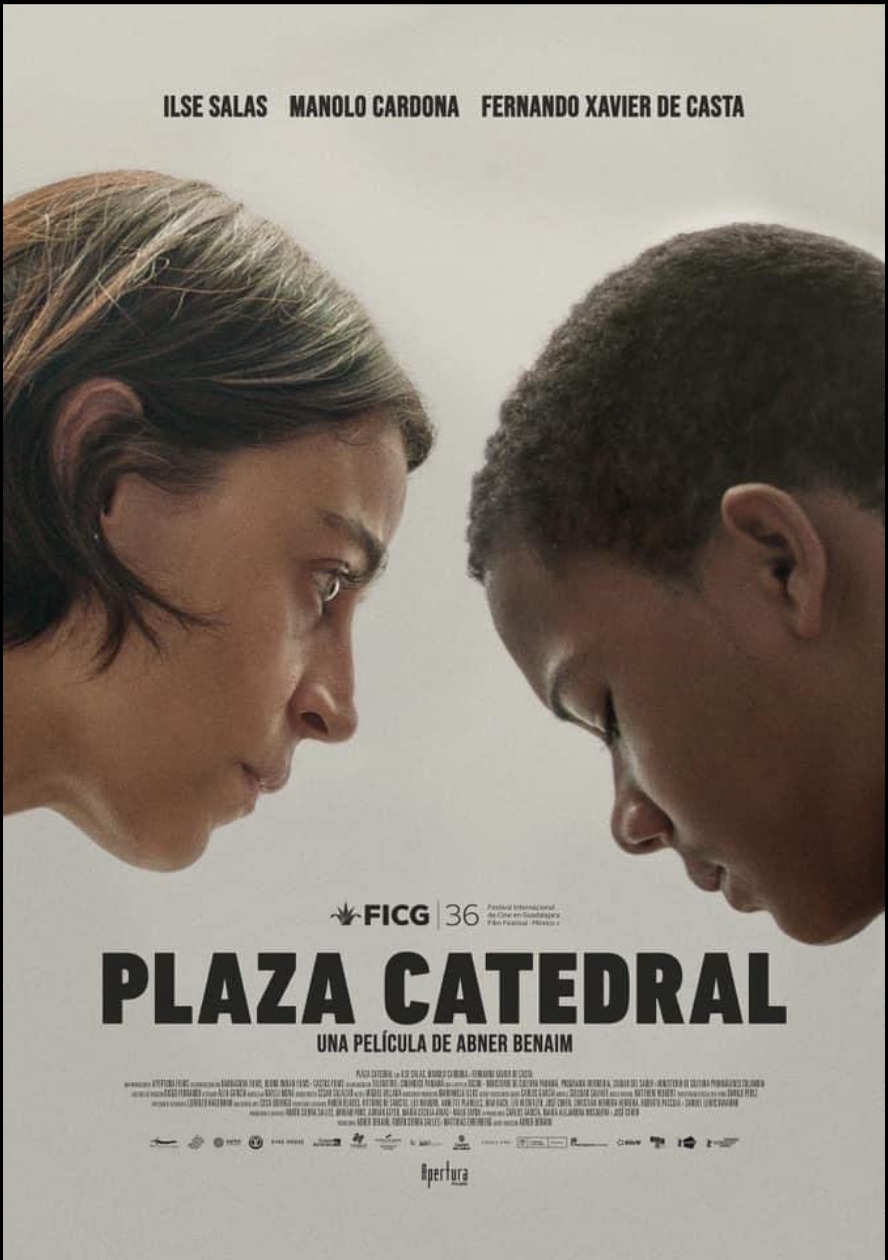
Plaza Catedral is Panama’s first time to reach the shortlist as are first time films from Kosovo, Hive (US: Zeitgeist, ISA: Level K), and Bhutan’s Lunana: A Yak In The Classroom (No. America: Goldwyn, ISA: Films Boutique).
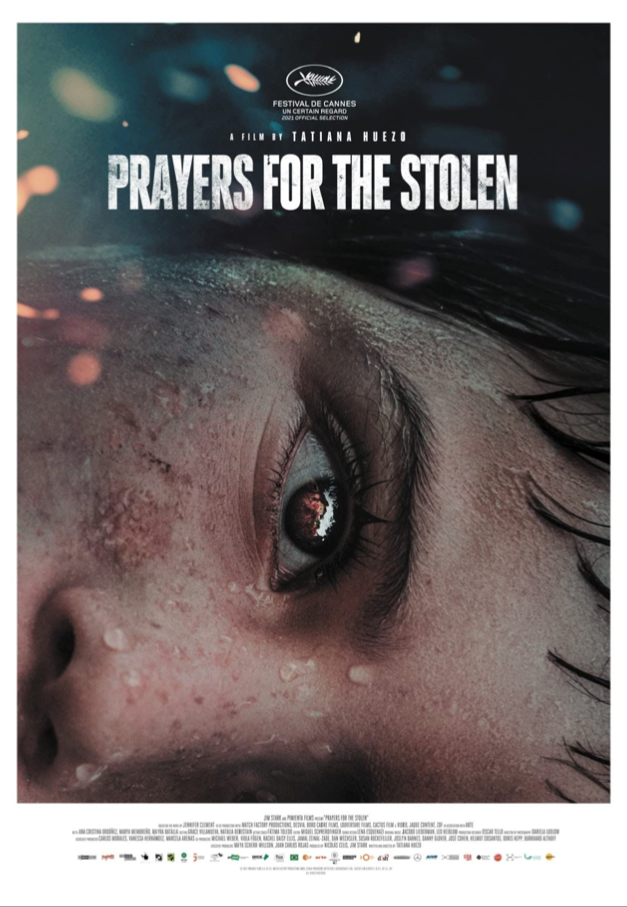
Two entries from Asia included Bhutan’s Lunana: A Yak In The Classroom (No. America: Goldwyn, ISA: Films Boutique) and the Japanese entry — and critics’ favorite — and mine— Drive My Car (US: Janus, ISA: The Match Factory).
The only Middle Eastern film is Iran’s A Hero (US: Amazon, ISA: Memento) by two-time Oscar winner Asghar Farhadi. Africa has no film on the shortlist, despite admired entries including Chad’s Lingui, The Sacred Bonds (US: MUBI, ISA: Films Boutique) and Morocco’s Casablanca Beats (US: Kino Lorber, ISA: Wild Bunch) and for the very few who saw it and loved it in Burkino Faso, Toronto, Marrakesh or El Gouna Film Festivals, Senegal’s The Gravedigger’s Wife (no US Distributor, ISA: Orange Studios) who had no money to hire a publicist.
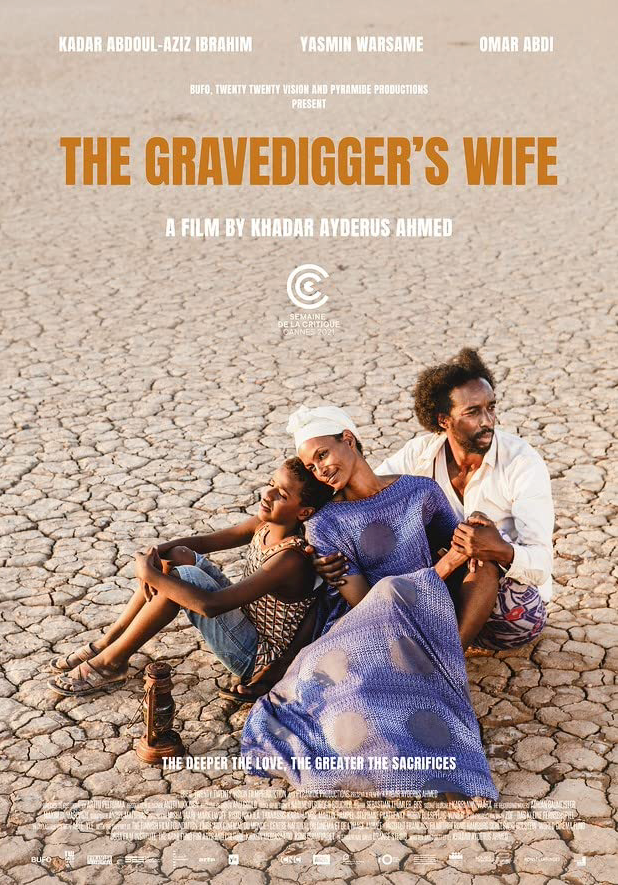
My predictions in order of my preferences — and I was so extremely impressed with all those I was lucky enough to see *:
Drive My Car (Japan)
Dir. Ryusuke Hamaguchi
This Cannes Competition Best Screenplay Winner is a three-hour drama adapted from a couple of Haruki Murakami short stories, about a recently widowed stage director rehearsing Chekhov’s Uncle Vanya during a theatre residency in Hiroshima, and the bond he forms with his young female driver.
Drive My Car has been named this year’s best film by the New York and Los Angeles critics. Janus Films released Drive My Car in the US in November. My question remains: Why is this great film not available on any streaming platform? Word of mouth should be building as people watch it and reflect on their own lives, the hidden and the profane, our daily bread and the wish for redemption.
The many layered drama was able to take a short story and layer it with overlapping stories in a way that quietly stirs the depth of your heart. It is slow and acts slowly upon your emotions but once you are in the rhythm of it, you are infused by its fragrance and its cathartic action which unfolds within you.
The Russian play itself that our hero will direct (Uncle Vanya) is enough to set off its own chain of reactions for those aware of its content. After Anton Chekhov published it in 1898 the director of the Moscow Art Theatre, the great Konstantin Stanislavski brought it to the stage. The play, about an elderly professor and his much younger glamorous second wife who are considering selling the rural estate that supports their urban lifestyle in order to have more money to live their lives, is also about those who care for the estate — his daughter by his first wife and his first wife’s brother, those who will be left bereft by the actions of the others. So he and his driver reflect on their own states of being left bereft.
ISA (International Sales Agent) The Match Factory has licensed to A-One Films (Baltics, Estonia), Andrews (Taiwan), Arthaus (Norway), Bitters End (Japan), Diaphana Films (France), Elastica (Spain), Future Film (Finland), Gutek Film (Poland), Janus Films (USA), Lighthouse Pictures (Singapore), Mars (Turkey), Modern Films (UK), NjutaFilms (Sweden), Polyfilm (Austria), Rapid Eye Movies (Germany), September Film (Netherlands), Tucker Film Udine (Italy)
The Hand Of God (Italy)
Dir. Paolo Sorrentino
Sorrentino — who won this Oscar category in 2014 with The Great Beauty (see blog) — is nominated for this autobiographical tale of himself as a teenager (Filippo Scotti) growing up in Naples in the 1980s with a characteristically southern Italian family (including dad Toni Servillo). As he finds his path to filmmaking he realizes the hand of God has saved him and redeems him. The Hand Of God premiered in competition in Venice where it won the Grand Jury Silver Lion and the Mastroianni Award for Best Young Actor (for Scotti), and has been nominated for Best Foreign Language Film at the Critics Choice and Golden Globes. Comparable to, but surpassing Almodóvar’s autobiographical film Pain and Glory and referencing plenty of Fellini, this film fills the emotional need we have to believe our fates are somehow connected to a higher register than that of mere mortals.
Worldwide: Netflix except Greece and Spain
Flee (Denmark)
Dir. Jonas Poher Rasmussen
Last year Thomas Vinterberg’s Another Round won the Oscar for Denmark, and now, Flee is not only nominated for Best International Feature but also for Best Documentary and Best Animated Feature. Flee tells the story of an Afghan refugee, on the verge of marriage, who is compelled to reveal his hidden past for the first time. Flee debuted at the Sundance Film Festival in January, where it won the grand jury prize in the World Cinema Documentary Competition, and has gone on to win Best Documentary and Best Animated feature at the European Film Awards.
It is analogous in storytelling and emotional impact to Waltz With Bashir, with the emotional staying power. It has created very strong word of mouth and much praise. It is a shocking story by an adult who as a young teen escaped Afghanistan and in order to be allowed residency must live a lie.

ISA** Cinephil has licensed it to Neon for US and Elevation Pictures for Canada, I Wonder Pictures for Italy, Madman Entertainment for Australia/ NZ, Periscoop Film for Benelux, Reel Pictures for Denmark, Film Europe for Czech Republic and Slovakia, Must Kasi/ Kino Soprus for Estonia, Mer for Norway, Triart for Sweden, Hooray for Taiwan, Curzon for UK
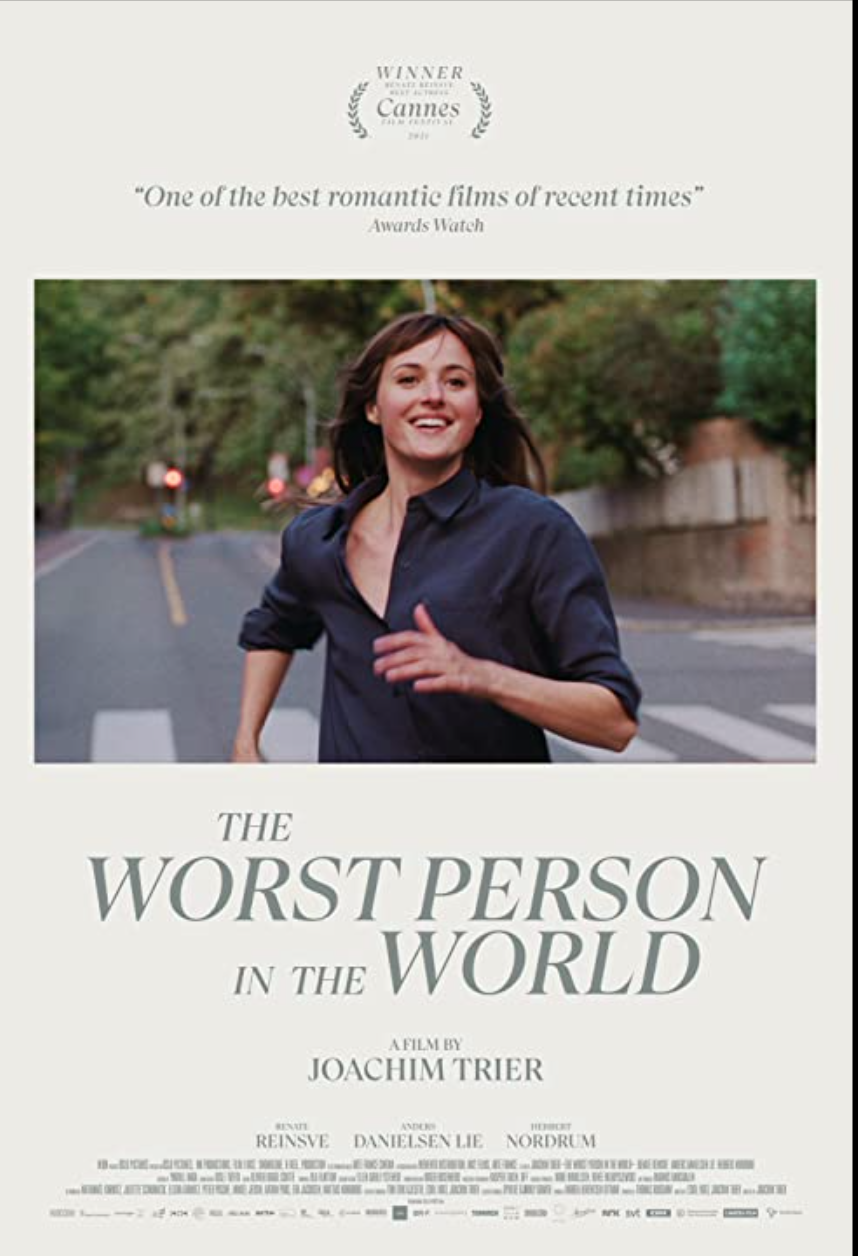
The Worst Person In The World (Norway)
Dir. Joachim Trier
The final film in Trier’s Oslo trilogy, (Reprise and Thelma were both submitted but neither made the shortlist), The Worst Person In The World saw its star Renate Reinsve receive the Best Actress Award in Cannes, and then to being nominated for European Film Award. A young woman navigating the unknown future with a turbulent love life and floundering career choices struggles to find a steady path in life. Last year Norway did make the shortlist with Maria Sødahl’s Hope, and it received a nomination in 2012 with Joachim Rønning and Espen Sandberg’s Kon-Tiki.
This was emotionally complex and satisfying, perhaps more for women of uncertain age than for men. I think its limitation is in its audience potential.
Watch the trailer here.
ISA MK2 has licensed the movie to Neon for USA, Madman for Australia/ NZ, Cineart for Benelux, Camera for Denmark, Memento for France, Mozinet for Hungary, Gaga for Japan, Front Row for Middle East and Africa, SF Studios for Norway, M2 for Poland, Alambique for Portugal, Independenta for Romania, Anticipate for Singapore, Elastica for Spain, Triart for Sweden, Frenetic for Switzerland, Hooray for Taiwan, Arthouse Traffic for Ukraine, MUBI for France, Germany, Latin America, Turkey, India
Lunana: A Yak in the Classroom — Bhutan by Pawo Choyning Dorji. Premiered in BFI London FIlm Festival. (No. America: Goldwyn, ISA: Films Boutique). The debut of writer-director Pawo Choyning Dorji, this Dzongkha-language film is about a young Bhutanese teacher who aspires to be a singer in Australia but finds himself assigned to an isolated school in the Himalayan glacial village of Lunana, inhabited by a small nomadic community. Dorji started as an assistant on Bhutanese lama and director Khyentse Norbu’s Vara: A Blessing (2013) and went on to produce Hema Hema: Sing Me A Song While I Wait, which premiered in Toronto’s Platform section in 2016 and received a special mention.
Lunana premiered simultaneously at BFI London, Vancouver and Busan Film Festivals in October 2019. In 2020 it was submitted for Bhutan but was disqualified because the selection committe was not Academy-approved. It was resubmitted and accepeted in 2021. Bhutan has only been at the Academy Awards three times — the first being The Cup in 1999, and twice with this film. This is the first time it has made the shortlist.
Recapping the shortlisted films which were so engaging, entertaining and engrossing this year:
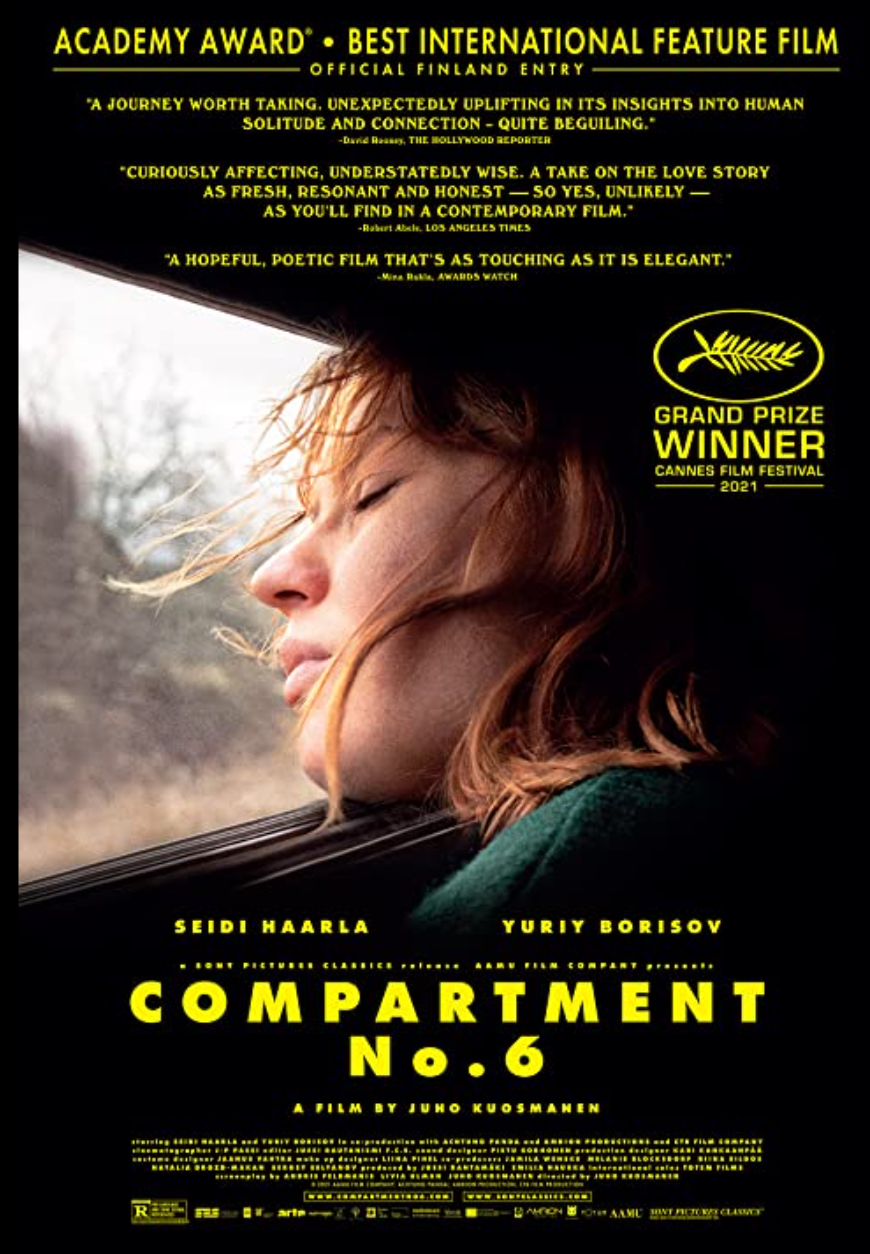
Compartment №6 (Finland)
Dir. Juho Kuosmanen
Kuosmanen’s second feature — which shared the Grand Jury prize in Cannes Competition with Asghar Farhadi’s A Hero — is about a well-educated idealistic young woman who must share a compartment on a train travelling up to the Arctic circle with a complete derelict. Kuosmanen’s previous feature, The Happiest Day In The Life Of Olli Maki, was Finland’s Oscar submission for the 2017 awards, although it did not make the shortlist. Finland has yet to win and its only nomination ever was for Aki Kaurismäki’s The Man Without A Past in 2003. Compartment №6 earned three European Film Award nominations including Best Film, but did not win its categories.
A Hero (Iran)
Dir. Asghar Farhadi
Iran’s best-known filmmaker directed foreign-language Oscar winners A Separation and The Salesman. Farhad’s newest morality tale is about a prisoner — jailed for defaulting on a debt — who spends his two-day exit pass trying to persuade his creditor to agree to terms, thus expediting his release. A Hero shared the Cannes Grand Jury Award with Juho Kuosmanen’s Compartment №6. Amazon releases in North America and UK/Ireland, while Memento achieved multiple sales in other territories, and releases itself in France.
I’m Your Man (Germany)
Dir. Maria Schrader
The fourth feature from Schrader (including 1998’s The Giraffe, which she co-directed) stars Maren Eggert as a scientist who agrees to live with a humanoid robot (a German-speaking Dan Stevens) in order to fund her research. Eggert won the acting Silver Bear in Berlin, where I’m Your Man premiered, and the film went on to win four major prizes at the German Film Awards: feature film, direction, screenplay and actress. Austria submitted her film on Stefan Zweig for the Oscar last year, making this her second Oscar contender. Germany’s last Oscar was in 2007 with Florian Henckel von Donnersmarck’s The Lives Of Others, and has been nominated four times since, most recently in 2019 with von Donnersmarck’s Never Look Away.
Playground (Belgium)
Dir. Laura Wandel
Wandel’s debut feature Playground follows a seven-year-old girl named Nora as she enters first grade at a French primary school and must learn to manoeuvre in a strange new world. The Belgian production has been a hit with critics since its premiere in Cannes Un Certain Regard where it won the Fipresci Prize, going on to win the Best Debut Award at the BFI London Film Festival. Indie Sales is handling international sales. Belgium has never won this category, but has been nominated seven times, most recently in 2014 with Felix van Groeningen’s The Broken Circle Breakdown.
Great Freedom (Austria)
Dir. Sebastian Meise
Premiering at Un Certain Regard at Cannes, Great Freedom won the Jury Award and went on to play many European festivals. The second fiction feature from Meise stars Frank Rogowski (Transit, Undine) as a gay man in post-war Germany who discovers intimacy in prison over the course of several incarcerations for his infractions against the country’s notorious Paragraph 175. Mubi has rights in North America, UK, Ireland, Turkey, India and most of Latin America. Austria has twice won this category before: in 2013 for Michael Haneke’s Amour and 2008 for Stefan Ruzowitsky’s The Counterfeiters.
Prayers For The Stolen (Mexico)
Dir. Tatiana Huezo
After eight previous nominations, Mexico finally won its first International Feature Award in 2019 for Alfonso Cuarón’s Roma, one of three Oscars that year. Huezo’s Prayers For The Stolen is based on Jennifer Clement’s novel, and shows life in a town at war seen through the eyes of three young girls on the path to adolescence. The film debuted in Un Certain Regard at Cannes and went on to festivals including Melbourne, Karlovy Vary, San Sebastian and New York. It is the director’s third feature, after 2011’s El Lugar Mas Pequeño and 2016’s Tempestad.
The Good Boss (Spain)
Dir. Fernando León de Aranoa
Spain won the Best Foreign Language film Oscar — as it was then called — for The Sea Inside starring Javier Bardem in 2005. This black comedy starring Bardem as a not-so-good factory boss was chosen over Almadovar’s Parallel Mothers, perhaps for political reasons. Director León de Aranoa teamed up with Bardem in Mondays In The Sun — Spain’s pick for the Oscar in 2003, which was not nominated. Cohen Media Group releases The Good Boss in North America. Its international sales agent MK2 has sold it to Future Film for Finland, Paradiso Entertainment for Benelux, Camera for Denmark, Front Row for the MENA (Middle East and North Africa) and Iran, Pris Audiovisuais for Portugal, TriPictures for Spain, Paname for France, Limelight for Australia, New Zealand and associated islands, and Pathe for Switzerland.

Lamb (Iceland)
Dir. Valdimar Jóhannsson
Jóhannsson’s debut feature, which won the Cannes Un Certain Regard Prize of Originality this year, stars Noomi Rapace and Hilmir Snaer Gudnason in the story of a childless farming couple in rural Iceland who make an alarming discovery one day in their sheep barn and face the consequences when they defy the will of nature. Lamb delivered the highest opening weekend for an Icelandic release in North America and has now grossed $2.7m in the territory via A24. Iceland has only been nominated once so far in this category — in 1992, with Fridrik Thor Fridriksson’s Children Of Nature — and also made the shortlist in 2013 with Baltasar Kormakur’s The Deep.

Lunana: A Yak In The Classroom (Bhutan)
Dir. Pawo Choyning Dorji
Not submitted for this year’s Bafta Film Awards
Plaza Catedral (Panama)
Dir. Abner Benaim
Panama’s Oscar entry has already been beset by tragedy: the film’s lead actor Fernando Xavier de Casta was killed earlier this year, aged just 15, in reported gang violence. In a haunting echo, Plaza Catedral centres on a woman who, while mourning the loss of her 13-year-old son in an accident, has her life turned upside down when a teenager (de Casta) asks her for help after being shot in a street conflict. De Casta and Ilse Salas won the best actor and actress awards at Guadalajara Film Festival, where the film debuted in October 2021. Benaim represents Panama for the third time on the Oscar stage, after Ruben Blades Is Not My Name for the 2019 awards and Invasion, the country’s first entry, for 2015. This is the first time the country has made the Oscars shortlist.
Not submitted for this year’s Bafta Film Awards
Hive (Kosovo)
Dir. Blerta Basholli
Kosovo’s nascent film industry continues to grow, with its eighth Oscar entry — all consecutively, since the 2015 awards — and has now achieved its first shortlist inclusion. Basholli’s debut feature premiered in the World Cinema Dramatic competition at Sundance in 2021, winning the section’s grand jury prize as well as the directing and audience awards. Hive centres on a woman whose husband has been missing since the Kosovan war, leaving her to set up her own business to provide for her children. LevelK represents sales, while Kino Lorber releases in the US.
Submitted for this year’s Bafta Film Awards (Altitude)
**Descriptions credit to ScreenDaily.com
*ISA=International Sales Agent




No comments:
Post a Comment